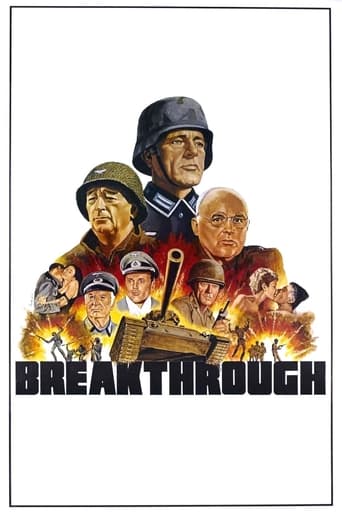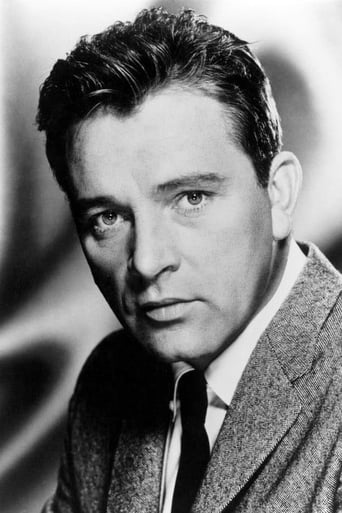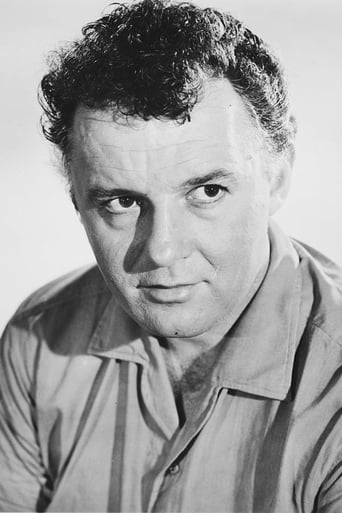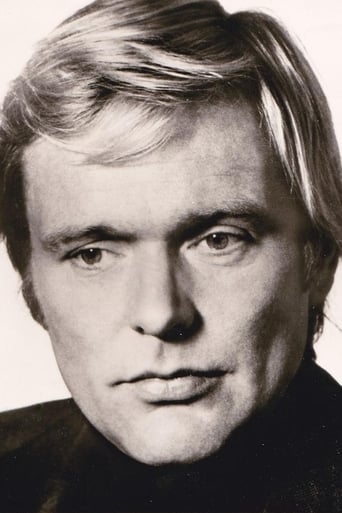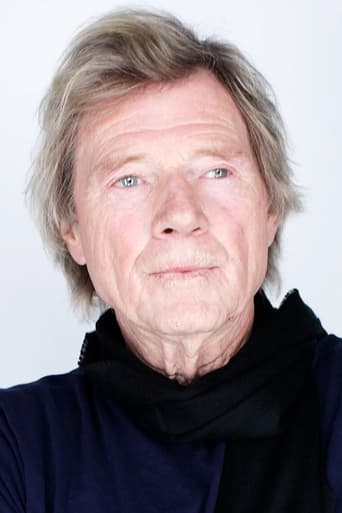bkoganbing
The Sergeant Steiner character from Cross Of Iron is carried over to this rather indifferently shot film Breakthrough. Steiner is played here by Richard Burton and is a professional soldier who's really getting disgusted by the useless slaughter ordered by his leader who never rose beyond corporal in the last war.In fact Burton finds a kindred spirit in his commanding general Curt Jurgens who is part of the Stauffenberg plan to assassinate Hitler. He sends Burton out on a most secret mission to find some high ranking officers to tell the American high command that the war could cease abruptly. Burton finds Colonel Robert Mitchum for that job.Of course Mitchum's message is received with a natural amount of skepticism from General Rod Steiger. But two days later when the Stauffenberg plot is a royal bust, the Americans don't know what to expect, especially in Steiger's part of the western front in France. Jurgens shoots himself and fanatical Nazi Helmut Griem is in command.Burton, Mitchum, Steiger, and Jurgens look like they've just cashed their paychecks and are just saying the lines to get the film over with. Andrew McLaglen was far better doing westerns for John Wayne back in the day as a director. Griem who was good at playing Nazis, he was great in Voyage Of The Damned is the only one giving a little life to his performance.This story about a separate peace in a part of the French front in World War II is sloppy and indifferent and one the stars did for the money.
Mike Mackin
I posted a review on the 1950 Breakthrough movie page as I didn't see it right away on the page with movies having Breakthrough in the title. It makes sense now that this was a rather low budget European production. It's not a bad movie but not a great one either. With Mitchum and Burton, I'm surprised it was this obscure. Anyway, without rehashing a plot synopsis all over again, it centers around the impending defeat of the Nazi's around the time of D-Day. It's basically a subplot concerning an effort by some of Hitler's generals trying to bump him off and negotiate a cease-fire with advancing Allied and Soviet forces before Germany is completely defeated and occupied. Not a stirring epic by any means, but no worse than a lot of John Wayne's stuff either.
SgtSlaughter
A film can usually be judged on its own merits. But a film claiming to be a sequel to Peckinpah's "Cross of Iron" and featuring some of the greatest actors who ever lived needs to be held to a high standard. "Breakthrough" is a waste of time and fails in virtually all departments.The plot cannot be taken seriously. It begins in late May of 1944, during the German retreat on the Eastern Front. "Cross of Iron" is set in January of 1943, yet our sequel begins where it left off, yet it's almost 16 months later. We are immediately introduced to several familiar characters, none of whom seem to measure up with their personalities from the original film. Sergeant Steiner (Richard Burton) is ordered by Captain Stransky (Helmut Griem) to blow up a railroad tunnel in order to prevent the Russians from using it. Steiner's squad fails miserably. Stop again: Coburn's Steiner was a crack NCO. He wiped out several different Russian outposts, patrols and tanks – with style. It's out of character for Steiner to be defeated to easily by one lousy Russian tank. Anyway: Steiner takes a breather in Paris, right as the Allies land in Normandy. His unit is transported to France, where they occupy the village of St. Bologne. General Hoffman (Curd Jurgens) appears and orders Steiner to cross the enemy lines and inform the American commanders (Robert Mitchum and Rod Steiger) that the German high command is plotting to assassinate Hitler and would like to surrender. This plan comes undone, and the American forces move to attack St. Bologne – which Stransky has planned to blow up – a plot which will wipe out the attackers and the civilian inhabitants.That's quite a bit to cram into one film, and McLaglen doesn't seem to know where he's going with this material. This is a very open-ended film, with little to link the sequence of events except pure coincidence. The script is serviceable on its own, but nothing here compares to "Cross". For starters, this new film ignores the last ten minutes or so of "Cross" and picks up right after the death of Lt. Triebig. Steiner appears to have no remorse against Stransky and, along with Kruger (Klaus Lowitsch) and Anselm (Dieter Schidor), joins the retreating force. Burton's portrayal of Steiner is simply unacceptable. For one thing, he's a bit too old and haggard to be considered a combat sergeant. He never gets involved in any physical action for this exact reason. Instead, he merely delivers dialog with a phony German accent and kills just as many Americans as fellow Germans as he seems confused as to whose side he's on. Unlike Coburn's Steiner, Burton's fails to stand for anything: he is loyal to his men, but winds up killing several of them in order to keep a promise to Colonel Rogers (Mitchum).The film also fails miserably because, despite a slew of Hollywood legends and some familiar German actors, the acting is banal and limited. Mitchum and Steiger are both wasted in mediocre roles as American officers. Steiger's part is particularly disappointing, as he always seems sincere but isn't given very much to work with. The only American actor in the ensemble who seems properly placed in Michael Parks in a small but seemingly-enjoyed role as Sgt. Anderson, who tags along with Mitchum on various dangerous outings. Dare I forget to mention the presence of the legendary Curd Jurgens, who gets little to do here but plays his typical typecast role of an aristocratic German General with gusto despite his obviously forced surroundings!The cast is chock full of German supporting actors, all of whom are forced into roles beneath their acting ability. Helmut Griem ("The McKenzie Break") is a pretty sorry stand-in for Maximilian Schell. He sure seems interested in getting his Iron Cross, but theme is reduced to an occasional reference or gag. The new Stransky is nothing more than a typical, one-dimensional Nazi out for American blood. Klaus Lowitsch is back and is a lot of fun as Corporal Kruger, although his character has changed, too: now he's wearing a German uniform and it's hard to tell is his cynicism is sincere. Werner Pochath ("Wartime") is a predictable pervert amongst the ranks of Steiner's squad; Gunter Meisner ("Is Paris Burning?") pops up in his usual role as a creepy SS officer; Horst Janson ("Shout at the Devil") is completely wasted as Steiner's company commander; even Joachim Hansen ("The Eagle has Landed") has a minimal role as Hoffman's aide. This film yearns for James Mason and David Warner, whose characters are simply forgotten in the midst of the chaos. On its own, "Breakthrough" still fails to make any sort of impression. The lack budgetary restrictions show up in nearly every frame. The first few scenes are composed almost entirely of stock footage from "Cross of Iron" and "The Battle of Neretva", while the rest feature a tremendous lack of extras and flair. We rarely see more than half-dozen actors on screen at one time, and the battle in the St. Bologne uses many of the same shots more than once, alternate takes of some shots, and some rather shabby soundstages. The direction always seems pretty standard and unimaginative; McLaglen, who's usually at least a competent director, doesn't take any chances in this film. Nothing happens that we haven't seen before, and the lack of flair makes the whole affair seem even more pedestrian. The music score is ill-fitting and badly written. It's composed mostly of symphonic cues which belong in a spaghetti western – or perhaps one of Antonio Margheriti's early sci-fi adventures – but certainly not an anti-war film! Fans of the cast will be disappointed. Fans of its predecessor will be severely disappointed. It's even a let-down for me, and I consider myself a pretty opened-minded war film fan. Don't even bother with this one.
